"Every player matters": How Sal Colangelo created a Big Train powerhouse in 20 years as head coach
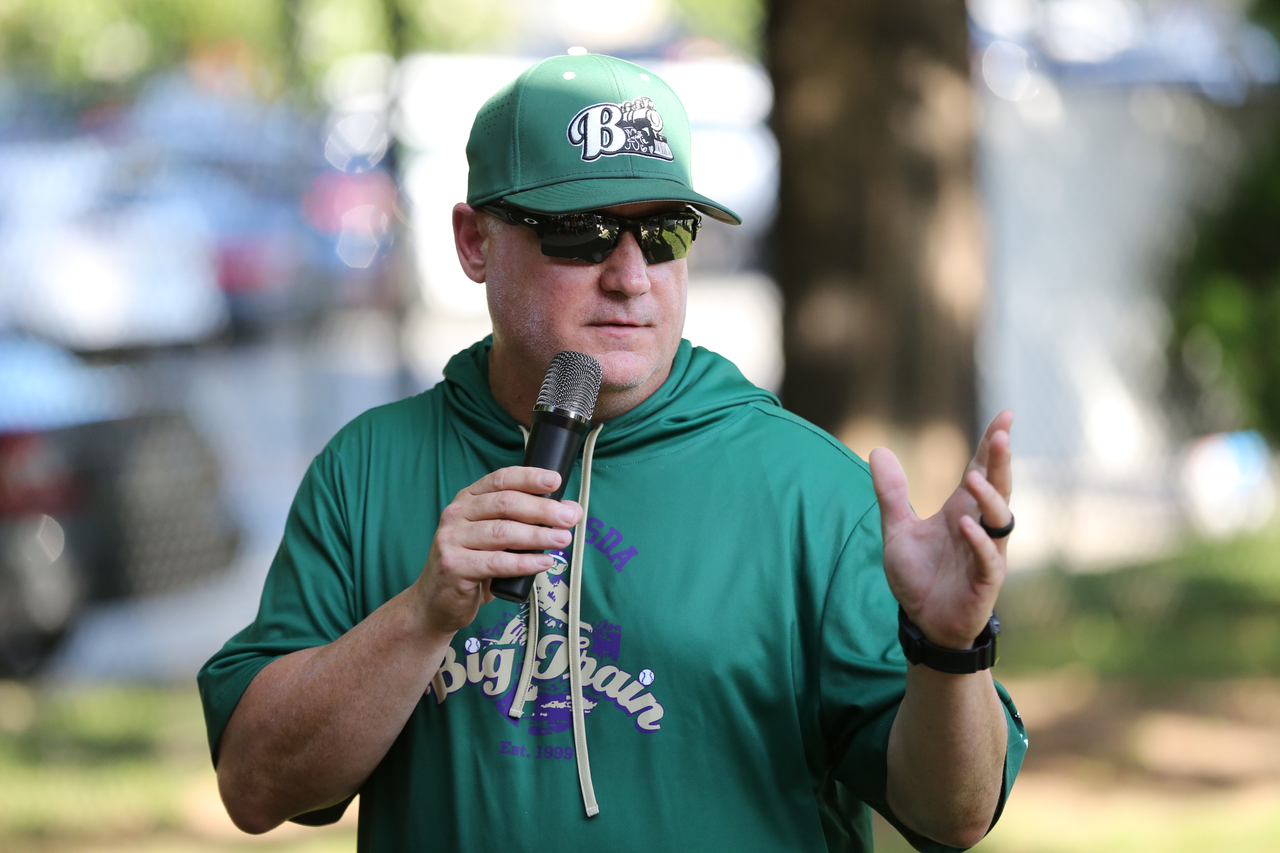
Sal Colangelo by Mark Thalman
In early 1999, then-Bethesda Big Train head coach Derek Hacopian took a trip to a local mall. There, he happened to encounter none other than Sal Colangelo.
The pair's subsequent conversation would shape the course of Big Train history forever.
"We had played against each other growing up," Colangelo says. "He was like, 'Hey, do you want to get back in the game? Do you want to coach?'"
Colangelo — previously an assistant baseball coach at Christopher Newport University from 1995 to 1997 — says Hacopian offered to pay him to do camps. However, the assistant coach position paid nothing at the time.
"I just said, 'Hey, great opportunity, something I might be very interested in or enjoy,'" Colangelo says.
Now, 26 years later, the Big Train's longtime leader is still going strong. After six seasons as an assistant, he took over as the team's head coach prior to its 2005 transition from the Clark C. Griffith Collegiate Baseball League to the Cal Ripken Sr. Collegiate Baseball League.
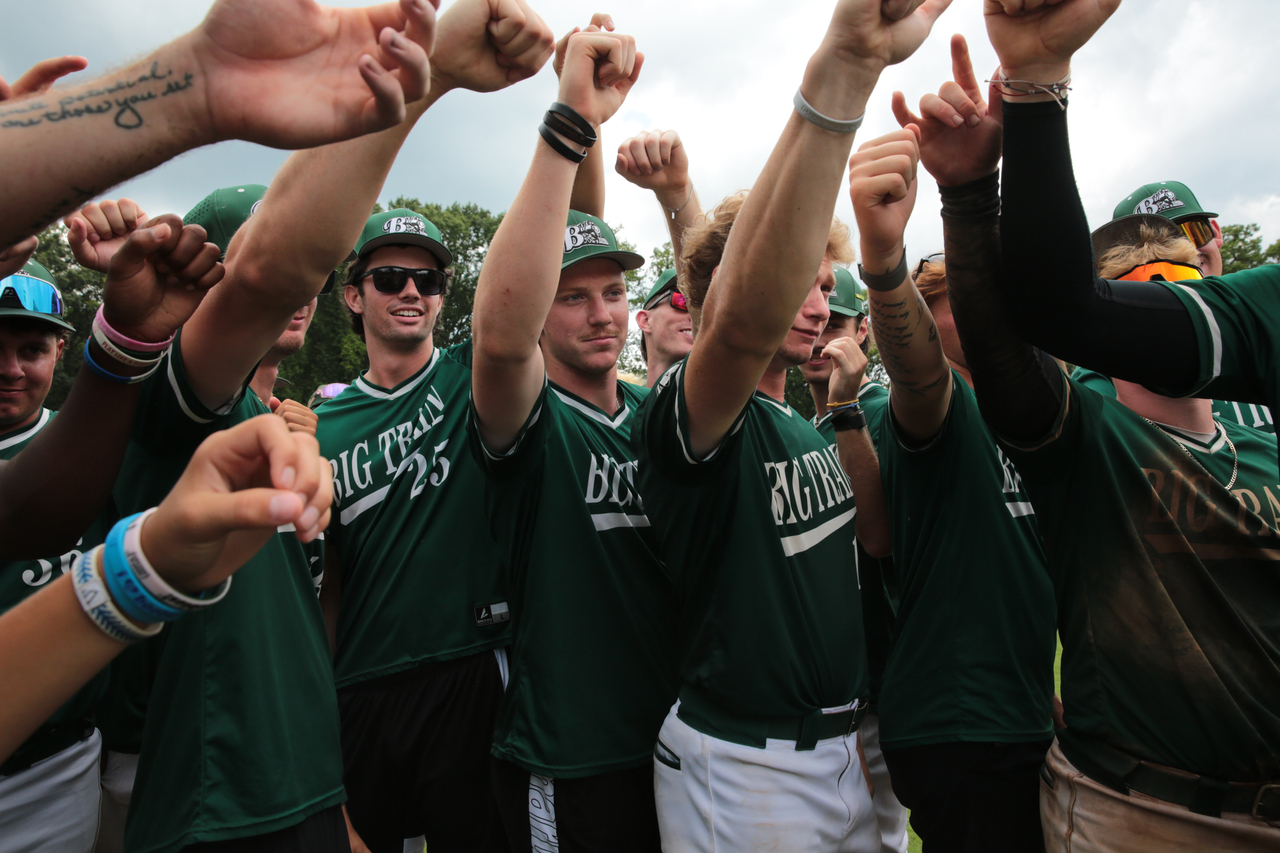
Team huddle by Mark Thalman
As a head coach, Colangelo has never finished worse than 24-18 in the regular season. His success — unimaginable in 1999 — has been the driving force for 11 Ripken League titles.
"Sal's the indispensable man," Big Train founder and president Bruce Adams says. "If Sal had gotten into the mall five minutes later, if Derek had slipped into a store or gone down a different aisle, they wouldn't have seen each other and Sal never would have been here. That's just … that's crazy. That's crazy cool."
A simple twist of fate was all it took for the Big Train to find its legendary coach. But in his eyes, the team's run of success has little to do with him.
"The wins aren't about Sal," Colangelo says. "The wins are about the players. The players won. I just tried to stay out of the way — as [pitching coach Craig] Lopez would say — and not derail the train."
Colangelo's players and coaches give him far more credit.
"Sal is very consistent in what he does," Big Train associate head coach Galvin Morris says. "He doesn't get off-track. No matter the situation, he's just been consistent from Day One."
"He's definitely a player's coach," says former Big Train outfielder Luke Adkins, who played for the team in 2006, 2008 and 2009. "When it comes to arguing calls and fighting for your guys, that's what he's going to do, but he's not an in-your-face type as far as the players are concerned."
"I feel like he's kind of a father figure to a lot of us," second baseman Brennon Wright (South Alabama) says. "We call him — not necessarily just about baseball — just about anything that we need to talk about. He's always there for us. He's always there joking around with us, always there for a good time."
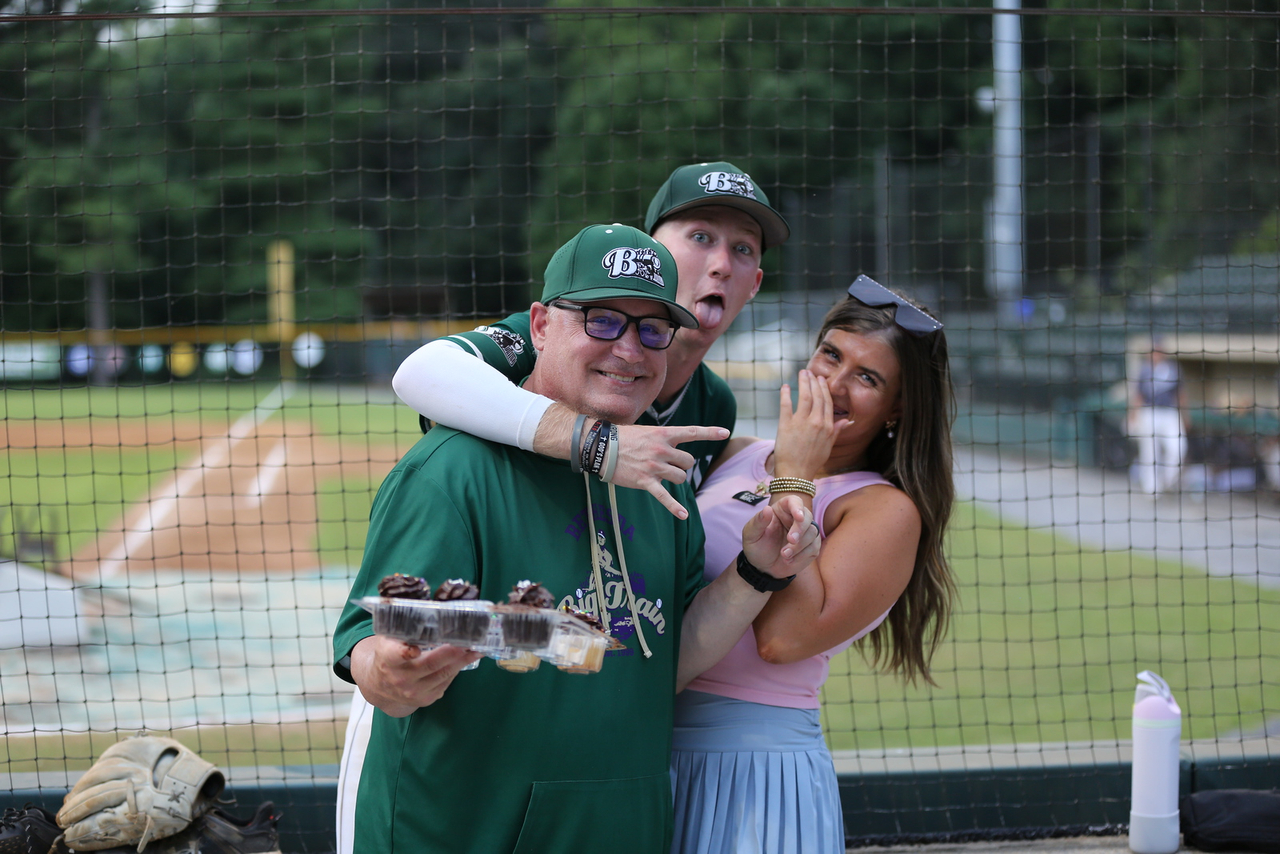
From left: Colangelo, Wright and Presley Black (Wright's girlfriend) by Mark Thalman
Building relationships has been a key component of Colangelo's coaching career. He says he continues to stay in touch with numerous former players, including Adkins, who came to visit this summer.
"It doesn't matter whether you play professional baseball or you're a lawyer or you work in the building trades industry. You matter," Colangelo says. "I tell them, 'I'm here. If you ever need anything, just give me a call.'"
"The cool thing about Sal is he's one of my best friends," former Big Train catcher Justin Morris (2014-2017) says. "We still continue to talk, and that's really rare, especially as a summer college coach. You don't see a lot of coaches like that."
"We're still close to this day," former Big Train pitcher Will Resnik (2012-2014) says. "He did really care about his players as people, aside from the baseball aspect."
Colangelo says that camaraderie is something the coaching staff seeks to foster from Day One.
"We tell them point-blank: We're family," he says. "And Coach Lopez leads a lot of that. He'll share some real-life stories, obstacles that he had to overcome in his life … and we all learn from it. And we're just bringing our experience, our knowledge, our institutional knowledge to these young men to make them amazing human beings."
"It definitely is a tight brotherhood," Justin Morris says. "I sometimes felt like I was in touch more with some of the guys I played with at Big Train versus guys who I played in college with."
Some players form connections with Colangelo even before they arrive in Bethesda.
"He would call me a few times before I came up here, and I feel like that bond kind of started then," Wright says. "I'm sure it's that way with a lot of guys as well. … This is by far one of the closest teams that I've personally been a part of, and it's been an awesome ride."
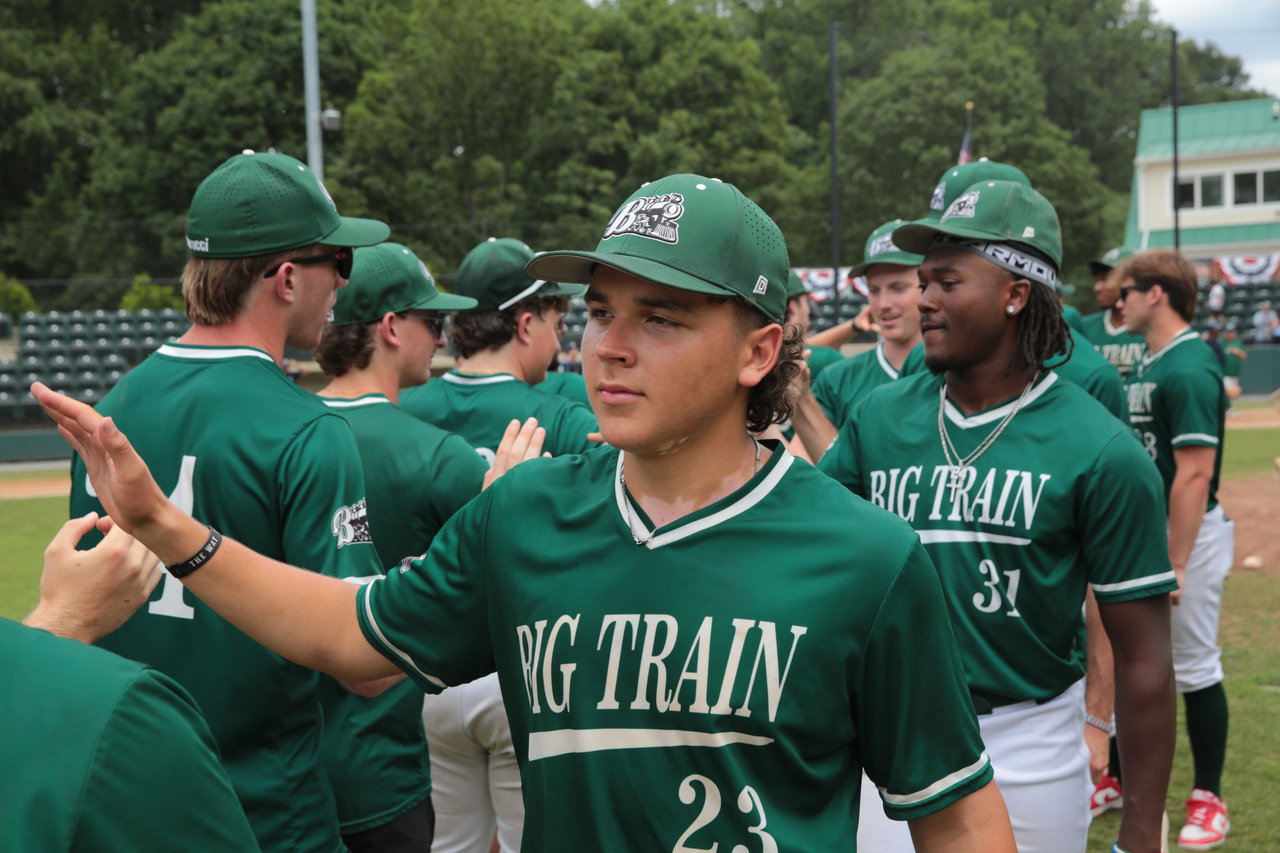
Team handshake line by Mark Thalman
Undoubtedly, Colangelo's team-first mentality has fueled much of the Big Train's success over the years. But team-building doesn't just start during the season. For Colangelo, it all begins nearly a year before Opening Day, when he makes recruiting calls to coaches during the summer.
As a head coach in the Ripken League, recruiting is an indispensable task. It's also an area where the team has enjoyed consistent levels of success, producing 25 MLB players over 26 seasons.
That's no accident.
Colangelo says he has a number of schools he likes to look to first. Most years, the usual suspects are Maryland, Florida Atlantic, Central Florida and Alabama, which sent a combined 10 players to Bethesda in 2025.
"A lot of times … the kids kind of go, 'Oh, it's summer ball. I don't have to do this, I don't have to do that,'" Florida Atlantic head coach John McCormack says. "But Sal doesn't play that game. You're going there to win. You're going there to get your work in. There is no BS."
"Sal's always been good to us," Alabama associate head coach Jason Jackson says. "He's always been good to our players. He's always been honest. He's always taken care of them."
Until recently, Colangelo's recruitment efforts would begin on beach vacations with his family. As his two daughters have gotten older, he says he's not at the beach as much.
Outside of that, Colangelo says his process has remained relatively consistent. Still, he says there has been one important baseball-related change in recent years.
"I'm definitely recruiting a little bit more players now than we have before because of the transfer portal," Colangelo says.
The reason? In Colangelo's eyes, players tend to bail more often nowadays once they commit to a new school.
"A big piece of summer ball and life skills is commitment," he says. "And that's one of the things these kids are forgetting about."
Often, those who stay committed to the Big Train experience the summer of a lifetime.
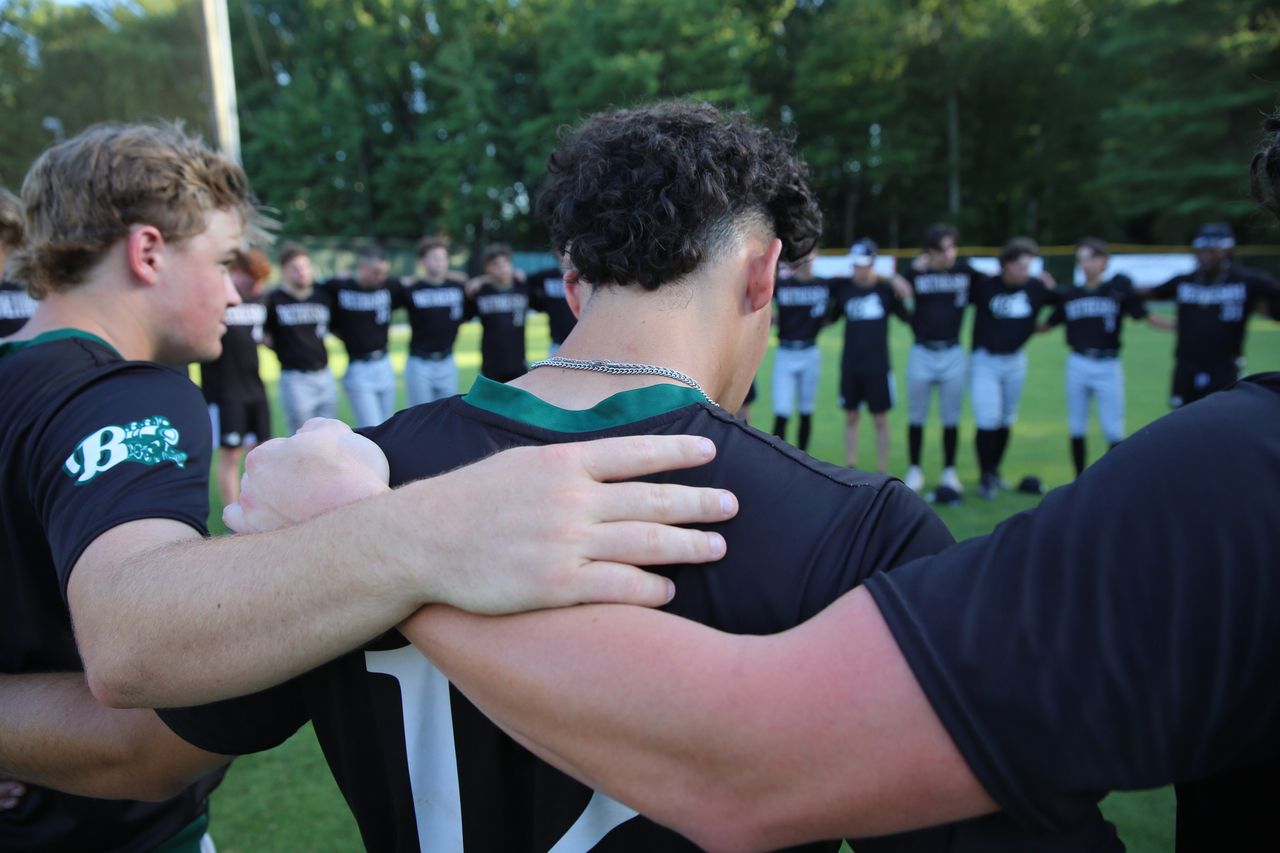
Team photo by Mark Thalman
Colangelo's approach to coaching is simple. He says his goal is to make sure players have a great experience while developing their skills along the way.
"You try to just be you, right?" he says. "Don't be anything more. Do what you do. Be a player's coach. Be very transparent."
Winning games, Colangelo says, plays a big part as well.
"Whether you're on the field or off the field, you want to win," he says. "You want to do the right things. You want to make the right decisions in the business world."
On the diamond, the team's success rarely ceases.
"Sal knows how to turn the switch on when he needs to, and I think the whole league kind of knows that, too," Southern Maryland Senators head coach Scott Middleton says. "He has years of experience and years of knowing what direction to go each time. Sometimes he has returners, and sometimes he doesn't, and he always seems to find a way to get that consistency year after year after year regardless of the turnover of rosters."
Why has that consistency always been present?
"He studies these other teams," Middleton says. "I mean, he knows pretty much what [each] player is doing when he steps up to the plate from the opposing team. He knows his stuff."
As an assistant coach, Galvin Morris says Colangelo has plenty of trust in his ability to succeed as well.
"Just knowing Sal so long and working with him, he lets me do what I do on offense," Morris says. "We're kind of on that same page. Almost — I wouldn't say Batman and Robin — but, you know, we could say Batman and Robin."
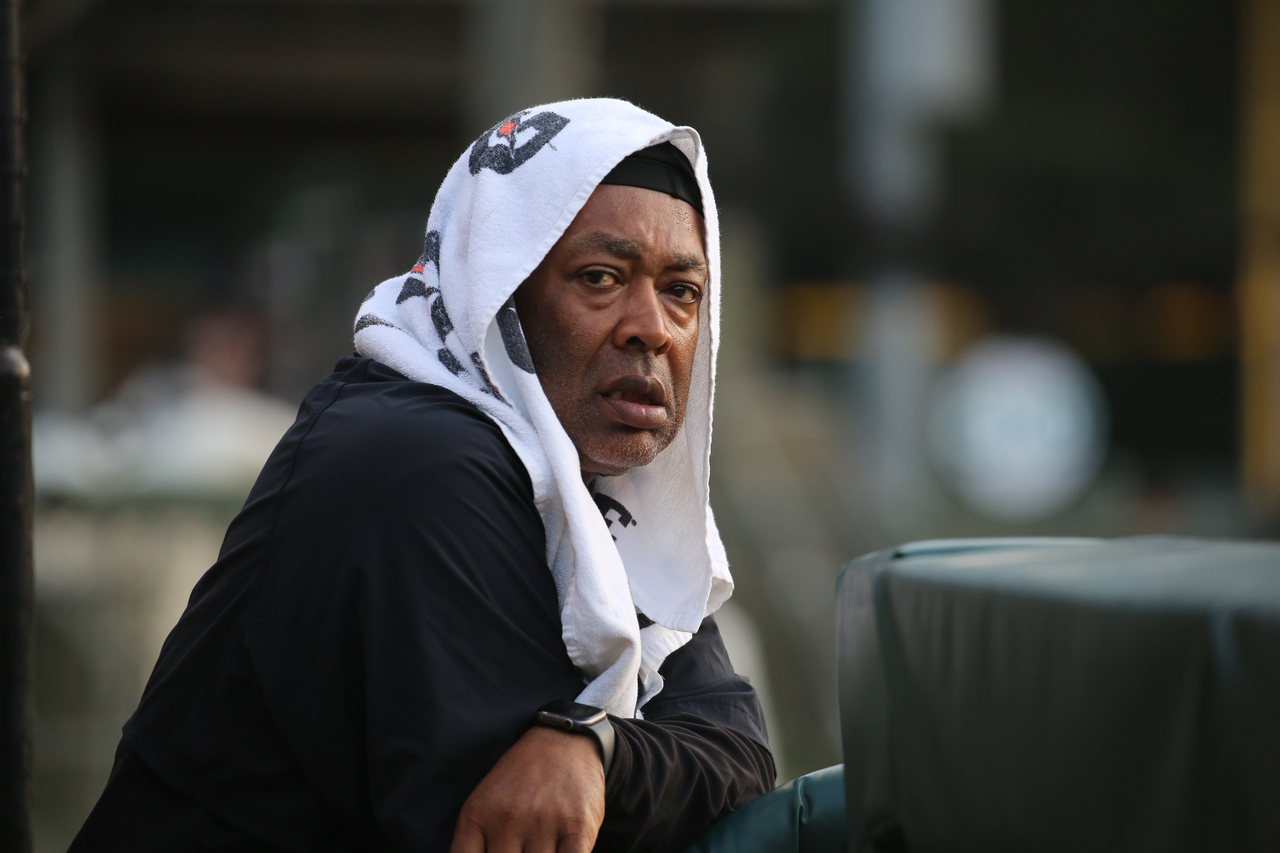
Galvin Morris by Mark Thalman
From a player perspective, Wright says Colangelo's knowledge of the game is apparent.
"I think he just knows the game in and out," Wright says. "He's been here since Day One. I think he knows this league way better than everybody else just simply for that fact."
After summer ends, McCormack says he's able to see plenty of growth from the players that return to Florida Atlantic.
"They all gain a level of maturity," he says. "These guys grow up in an environment where no one holds them accountable. We hold them accountable, and then they say, 'Well, summer ball's going to be great,' but Sal holds them accountable, which is very unique in summer ball. It doesn't happen that often."
Middleton, Adkins and Galvin Morris all say they've taken lessons from Colangelo's coaching style and applied them to the teams they coach.
"From all my years leading up to the Senators, I've taken a lot of things from Sal that I learned when I was with him over at the Big Train," says Middleton, who coached the youth travel BCC Big Train from 2014 to 2018 and continued working at Big Train camps through 2021.
"I like to let my guys play, especially on game days," says Adkins, the former head baseball coach at Starkville High School in Starkville, Miss. "We work hard during the week. When it's game day, I let them go play. So that's definitely something that I learned from Sal."
"When the players know [they] matter, you care about them, they'll go through a wall for you, just like the guys that come here from other schools up across the country," says Morris, the head baseball coach at Briar Woods High School in Ashburn, Va. "They know Sal cares. They play hard and go through a wall for him, and I just kind of took that and incorporated it in my program."
Through it all, Colangelo says his emphasis remains on the individual.
"Every player matters," he says. "That's the number one player to the 30th player, getting them to understand they all can make a difference this summer. And as coaches, we can make a difference in their life and just be a small piece of it."
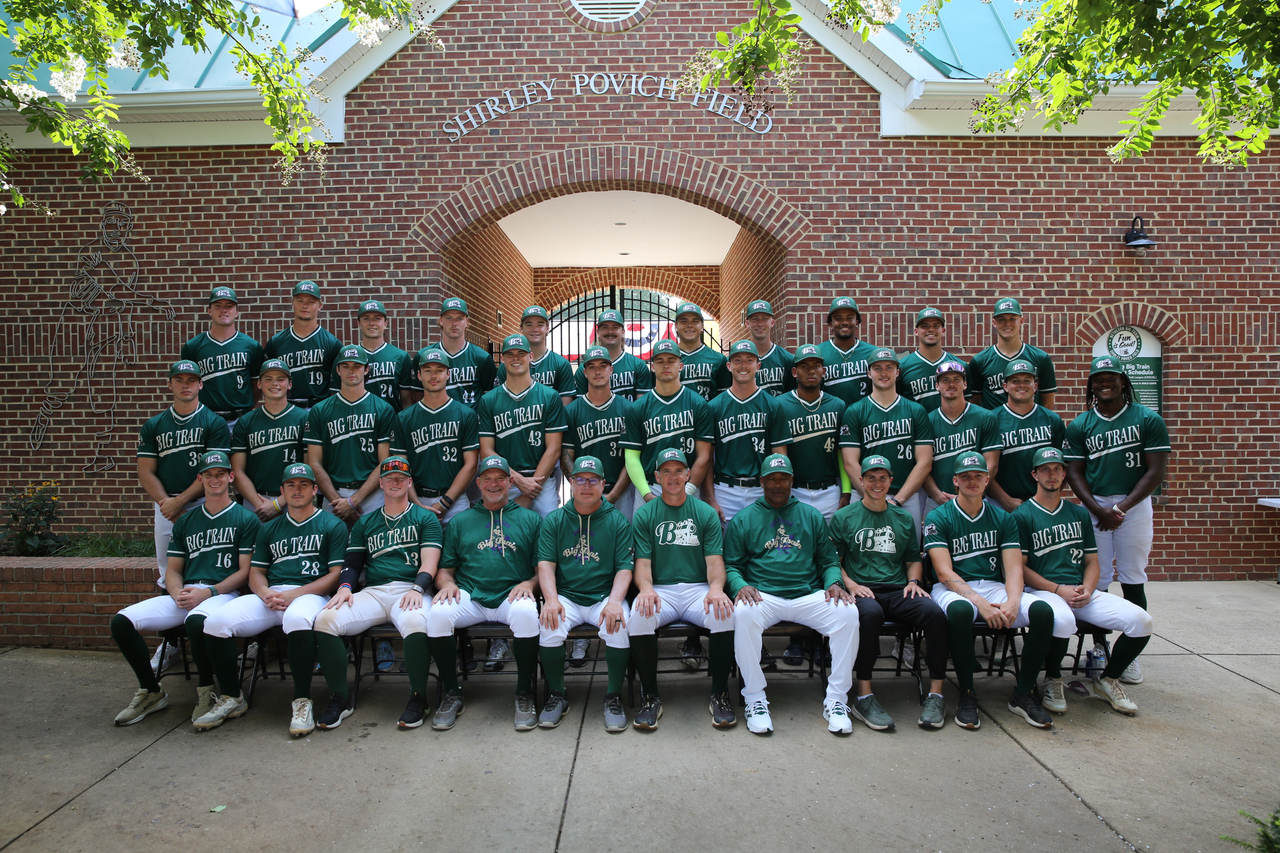
Team photo by Mark Thalman
On paper, when evaluating Colangelo's impressive coaching resume, the Big Train's 2009-2011 stretch jumps off the page.
"Sometimes, [high-profile players] come to the summer and they're just not successful," Colangelo says. "But at that point, in that span, we got such great players and such great people."
The Big Train won three straight championships during that time, becoming Perfect Game's top-ranked summer college baseball team nationally in 2011. Colangelo says the players in those years stood out in a big way.
"That was a group that didn't know how to turn it off," he says. "Like, you could be down eight runs in the third inning, [and they'd say], 'Hey Coach, don't worry about it, we'll put up six here, we'll do this.'"
In the pre-NIL era, those players arguably dealt with fewer outside distractions.
"All they were focused on is going to school, coming to summer, playing baseball and not having to worry about the transfer portal," Colangelo says. "Not having to worry about NIL, not having to worry about whether they're going to be cut or not cut from their university. So the kids back then were definitely more focused because they didn't have all the outside distractions that come with the game."
In the eyes of Colangelo, summer baseball has changed since then.
'It's a different time. It's a different era. The kids wanted to win," he says. "Don't get me wrong, the kids this year want to win, the kids prior, after 2011 wanted to win, right? But we're in a time frame of a crazy landscape of baseball."
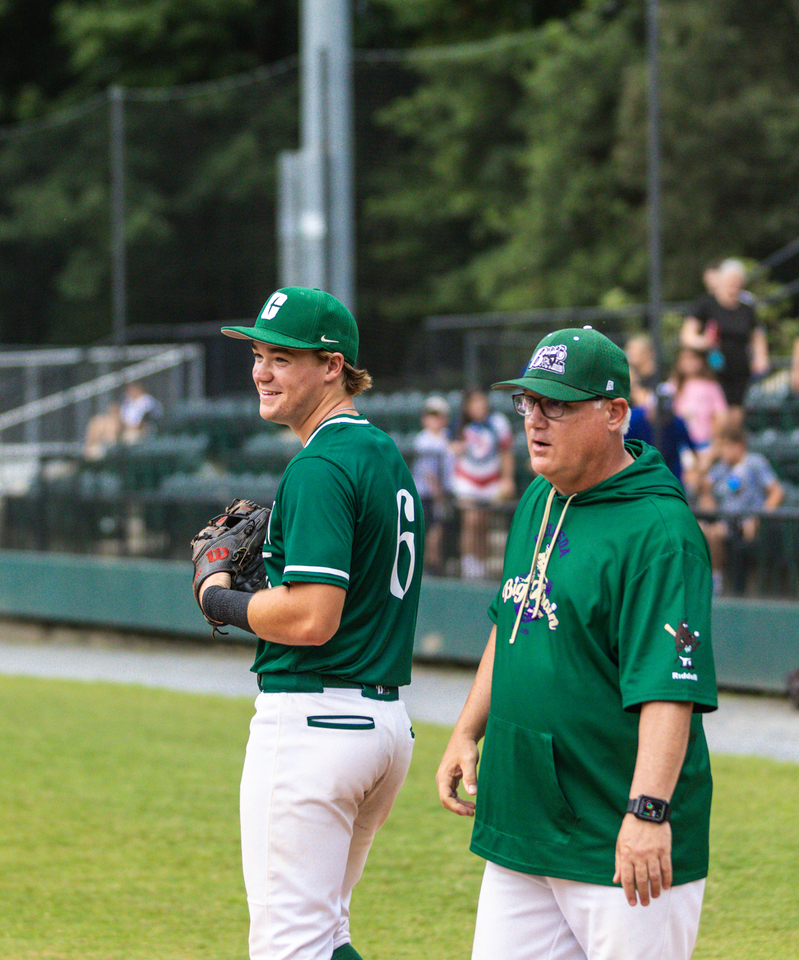
Logan Ponnett (left) and Colangelo by Mark Thalman
Being part of the Big Train has changed the lives of so many players over the years.
"I just tried to enjoy every moment of it because I knew it wasn't going to last forever," Justin Morris says. "You really don't remember the games where you were 2-for-4, 0-for-4. You remember the memories and the impact that certain people had on your life."
Arguably no single person has had a bigger impact on Big Train players, coaches and community members than Colangelo himself. So what's stood out through all these seasons?
"I mean, the grit of it," Adams says. "He lives in Lorton, so he's commuting. He's just got an incredible, miserable commute."
"He knew how to push all the right buttons, and he knew how to get the best out of you," Resnik says. "He was a player's coach, but he would yell at you and he would get on you, and it was never out of ego. It was because he loved you as a person, and he loved, he just loved winning, and he loved baseball."
Resnik says a couple of memories particularly stand out for him.
"I can remember I came out of the bullpen, and I didn't have a very good first inning, and I come in the dugout, and I sit down, and he's just staring at me," Resnik says.
"And I wouldn't look at him. I'm looking out at the field and I'm like, 'Why is he staring at me?' So I look at him and he's like, 'Are you kidding me?' And I was like, I said, 'Yeah, that was bad.'
"He's like, 'Yeah.' He goes, 'That wasn't bad. That was awful.' And he goes, 'So why don't you go out there next inning and try to figure it out?'"
"That pissed me off," Resnik says. "I mean, it made me mad as a player. But again, he wasn't doing that out of ego. He wasn't doing that because he was mad. He was doing that to get me to be a better pitcher and go out and have a better next inning."
In the playoffs, another moment between Colangelo and Resnik demonstrated the trust in their relationship.
"I had pitched like in three or four games straight, and then we were in the semifinal against Alexandria, and my arm was just absolutely hanging," he says. "I was like, 'I can't throw another baseball until I get back for the season,' and sure enough, he calls me out of the bullpen.
"I run in, and I'm out on the mound, and he just looks at me, and he's like, 'Do you trust me?' Because he knew I was hurting.
"And I said, 'Yeah, I trust you,' and he goes, 'Well, great, because I trust you too.' And then he just walked off, and one-two-three, got out of the inning, and onto the championship we went."
Resnik says he regularly stays in touch with Colangelo to this day.
"We still talk all the time," he says. "I'll usually give him a call before the summer starts [and] say, 'Hey, how's the team looking? What are you guys going to do this year?'
"I'll text him or call once the playoffs get going," Resnik says. "I text him on holidays. I'll call him on holidays."
Resnik says he even got a chance to spend time with Colangelo at former teammate Justin Morris' wedding last June.
"When you play for someone like that [who] cares about their players, that stuff is going to happen," he says. "Yeah, he was my coach, but I feel now like he's someone that I could always reach out to if I ever needed anything."
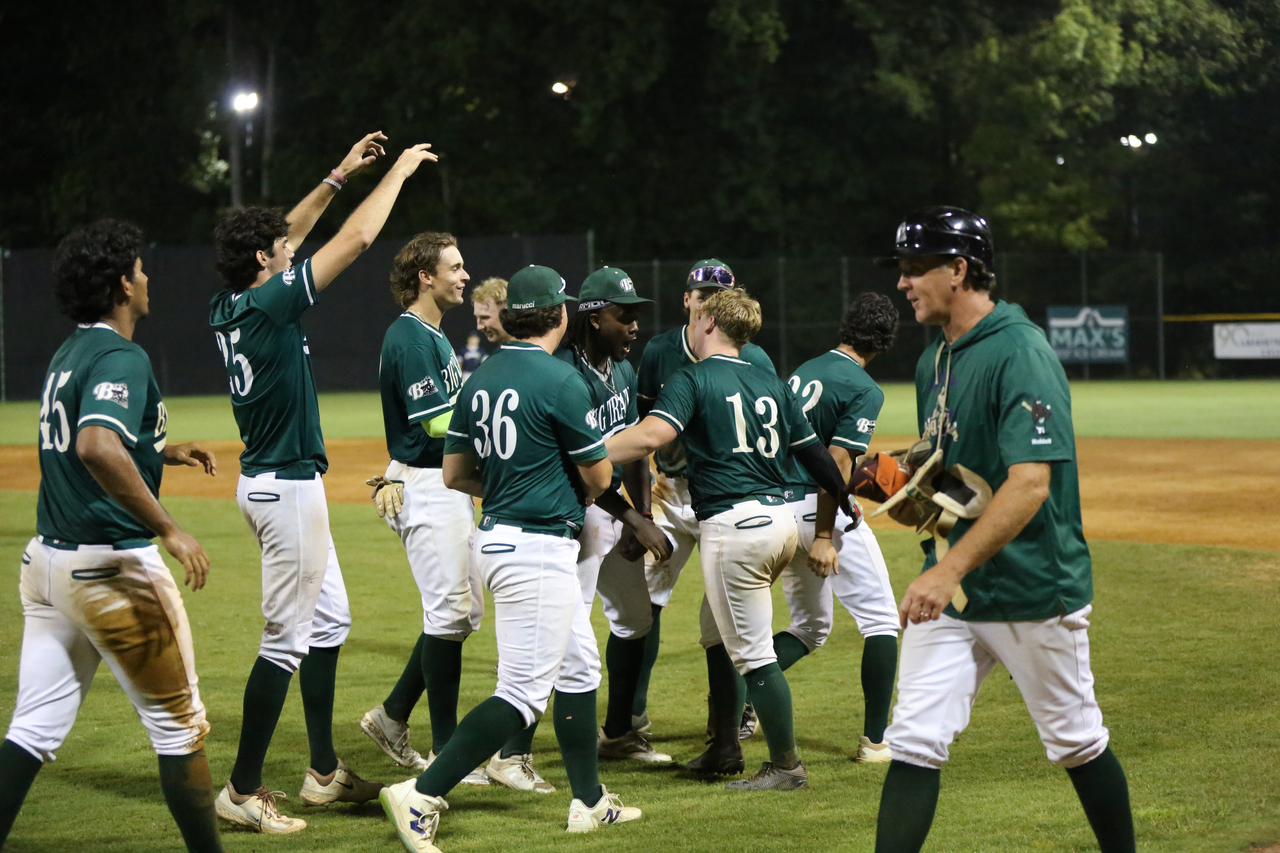
Team celebration by Mark Thalman
It's not just Resnik who has fond memories of Colangelo.
"It's a real good friendship, and it's almost like we're brothers," Middleton says. "That's one thing we'll never lose. Regardless [of] who wins or loses, we're always going to be there for each other."
"Being there for his 500th win, that brings back [memories]," Galvin Morris says. "Just being a part of that, helping him get to that 500th win, it's a big accomplishment."
In Colangelo's view, almost no games in his career stand out from the rest in terms of excitement.
"We try to rank our most exciting games and all that, but the person that I am, they all were exciting," he says. "I can pull out one or two things from probably every game if I sat and thought about it. What makes me more excited is just how the guys carried themselves or went about it.
"But if I really pulled out something, I would probably say being blessed to have the opportunity to start managing in 2005 and probably getting the first win of that year," Colangelo says. "That one stood out more, but all the other ones are just W's and wins."
Adkins grew emotional when talking about his favorite memory from his Big Train tenure.
"This was up in the 2009 [season]," he says. "You just knew that, more than likely, you would never be on the team with those guys again. And we were fortunate enough, we had a pretty good lead in the final game. … It was the final out, and Sal called the team out, and he ran one of my buddies that I still talk to to this day, and he did a player swap."
"Of course, my buddy gives him a big hug, and then Sal gave me a big hug, and now everybody in the stands, there were just cheers, and it was my last game as a Big Train player," Adkins says. "Of course, one out later, we won the championship, but it was like the end of a huge chapter of my life. I'll never forget that."
More broadly, Adams says it's a "blessing" to have Colangelo maintaining the head coaching stability other Ripken League teams often struggle with.
"In the early years, he was coming up here at — whenever it was — 6 o'clock in the morning for camp," he says. "I mean, this is just incredible commitment and just plain grit to do this over and over and over all these years. It's an amazing commitment to our organization, but it's really just an extraordinary work ethic."
Team-building mastery has produced another stellar season for the Big Train in 2025. Through work ethic, consistency and commitment, the man in charge has fueled 20 consecutive seasons of dominance, with a chance to add on a 12th championship this year.
Colangelo's mindset may be focused on not derailing the train. But regardless, his coaching prowess has been instrumental in putting countless Big Train players on a wonderful 20-year ride.

